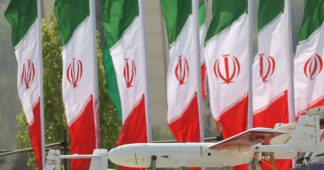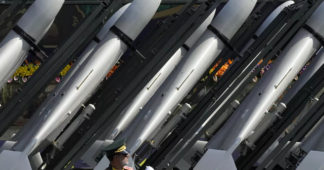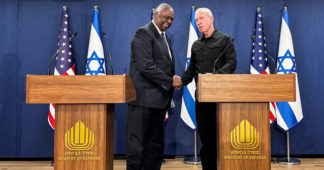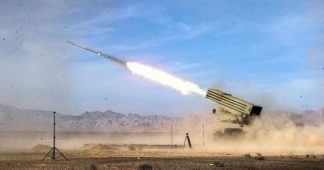Israeli prime minister’s main concern is his political survival but a multi-front war is still a strong possibility
By Bethan McKernan
Apr 19, 2024
In the aftermath of Iran’s unprecedented salvo of missiles and drones fired directly at Israel at the weekend, Benny Gantz, a centrist member of the Israeli war cabinet, said the country would respond “in the place, time and manner it chooses”.
That turned out to be explosions in the central Iranian city of Isfahan on Friday morning. Although no Israeli official has claimed responsibility for what seem to have been drone strikes on a military installation, Tehran, which had launched its attack after an airstrike on its consulate in Damascus, has downplayed the incident.
For now, the limited response may have staved off the threat of regional war – but settling for unclaimed drone attacks on a military site in Isfahan is unlikely to satisfy either supporters or critics of Israel’s longtime leader, Benjamin Netanyahu, or restore the level of deterrence Israel enjoyed in the region before the Hamas attack of 7 October.
“Netanyahu, who has been threatening to attack Iran for 20 years, has realised a dream, or at least part thereof. The question is what about us, the people,” Amos Harel, the defence analyst and columnist for the leftwing Israeli daily Haaretz, wrote on Friday.
Meanwhile, Netanyahu’s ally and far-right national security minister, Itamar Ben-Gvir, reacted with just one word, “Feeble!”, in a post on X.
Netanyahu’s war cabinet had initially approved plans for a strike on Monday night inside Iranian territory, according to sources who spoke to Reuters, but held off at the last minute. A phone call with the US president, Joe Biden, also deterred war cabinet members, including Gantz, who had wanted to take action while the Iranian assault was under way.
Yet the Israeli prime minister may have achieved several short-term wins here. The muted Iranian reaction has soothed an anxious Israeli public before the week-long Passover holiday. Israel has also struck while it still has international diplomatic support for such an action, before the sense of urgency wanes and the world’s focus returns to the war in Gaza and its deepening famine.
Continue reading at www.theguardian.com
We remind our readers that publication of articles on our site does not mean that we agree with what is written. Our policy is to publish anything which we consider of interest, so as to assist our readers in forming their opinions. Sometimes we even publish articles with which we totally disagree, since we believe it is important for our readers to be informed on as wide a spectrum of views as possible.











